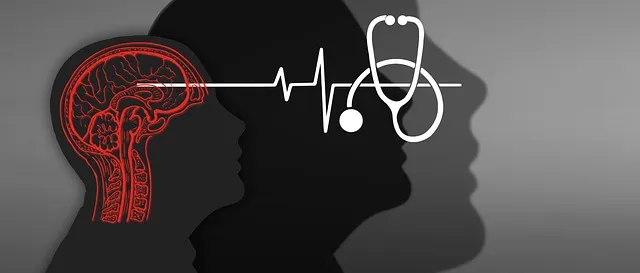Kaiser Permanente behavioral health services Colorado Springs leads in mental wellness by providing comprehensive self-assessment tools that combine evidence-based practices like stress management workshops, mindfulness meditation, and tailored strategies for diverse demographics. Their holistic approach, integrating emotional healing and self-awareness, enhances assessment accuracy while fostering a culture of proactive mental well-being. By focusing on both mental and physical health connections, they achieve improved outcomes and set industry standards, emphasizing the importance of continuous refinement based on user feedback for effective mental wellness support.
In today’s digital era, mental wellness self-assessment tools are crucial for addressing behavioral health needs. This article explores the development of these tools, drawing insights from Kaiser Permanente Behavioral Health Services Colorado Springs—a model for comprehensive care. We examine key components effective assessments should have and strategies for tailoring them to diverse populations. Additionally, we discuss evaluation metrics and continuous improvement methods, highlighting best practices learned from the successful implementation at Kaiser Permanente.
- Understanding the Need for Self-Assessment Tools in Behavioral Health
- Kaiser Permanente Behavioral Health Services Colorado Springs: A Model for Comprehensive Care
- Key Components of Effective Mental Wellness Self-Assessment Tools
- Developing and Implementing Assessment Strategies for Different Populations
- Measuring Success: Evaluation Metrics and Continuous Improvement
Understanding the Need for Self-Assessment Tools in Behavioral Health

In today’s fast-paced world, prioritizing mental wellness is more important than ever. Tools for self-assessment play a pivotal role in behavioral health, especially as organizations like Kaiser Permanente behavioral health services Colorado Springs recognize the growing need for accessible and effective strategies to support individuals’ well-being. These tools empower people to take an active role in understanding their mental health status, identifying areas of concern, and tracking progress over time.
By utilizing self-assessment methods, individuals can gain valuable insights into their emotional states, thought patterns, and behaviors, which are essential components of Kaiser Permanente’s holistic approach to behavioral health services Colorado Springs offers. Moreover, these tools facilitate the early detection of potential issues, enabling timely intervention and preventing more severe mental health challenges. Incorporating practices like Stress Management Workshops Organization, Stress Reduction Methods, and Mindfulness Meditation can significantly enhance self-assessment effectiveness, fostering a culture of proactive mental wellness within communities.
Kaiser Permanente Behavioral Health Services Colorado Springs: A Model for Comprehensive Care

Kaiser Permanente Behavioral Health Services Colorado Springs is a leading example of comprehensive mental wellness care. This facility offers a wide range of services tailored to address various aspects of an individual’s psychological well-being, from therapy sessions and medication management to innovative self-assessment tools. By integrating emotional healing processes and self-awareness exercises, they provide patients with the necessary resources to cultivate positive thinking and holistic mental health.
The model employed by Kaiser Permanente Colorado Springs emphasizes personalized care, ensuring that each patient receives a unique treatment plan aligned with their specific needs. This approach has been instrumental in improving outcomes, making it a benchmark for other behavioral health services nationwide. Their success lies in recognizing the interconnectedness of mental wellness and physical health, thereby fostering an environment conducive to lasting positive changes.
Key Components of Effective Mental Wellness Self-Assessment Tools

Effective mental wellness self-assessment tools should incorporate several key components to ensure they are comprehensive and valuable for individuals seeking to understand their emotional well-being. One of the fundamental aspects is incorporating a wide range of assessment types, such as self-report questionnaires, behavioral observations, and clinical interviews. This multi-faceted approach allows for a more nuanced understanding of an individual’s mental health status by capturing different perspectives and levels of awareness. For instance, the Kaiser Permanente behavioral health services Colorado Springs offers utilize a blend of these methods to provide accurate evaluations.
Additionally, incorporating evidence-based practices like Conflict Resolution Techniques, Mindfulness Meditation, and other therapeutic strategies within the self-assessment can enhance its effectiveness. These techniques not only aid in stress reduction but also empower individuals with skills to navigate challenging situations healthily. The Mental Wellness Podcast Series Production has played a significant role in popularizing accessible mental wellness content that incorporates such practices, encouraging more people to take an active role in their well-being.
Developing and Implementing Assessment Strategies for Different Populations

Developing assessment strategies tailored to diverse populations is a key aspect of creating comprehensive mental wellness self-assessment tools. At Kaiser Permanente behavioral health services Colorado Springs, professionals recognize that one-size-fits-all approaches may not be effective in evaluating and addressing the unique needs of different demographic groups. For instance, when designing assessments for adolescents, it’s crucial to incorporate techniques that foster empathy building and encourage open communication. This can involve interactive, non-threatening methods such as role-playing scenarios or engaging visual aids.
Similarly, for older adults, strategies should focus on preserving emotional well-being promotion through culturally sensitive approaches. Incorporating inner strength development exercises that resonate with their life experiences can enhance the assessment’s effectiveness. By considering factors like cultural background, age, and individual preferences, assessment tools become more inclusive and accurate, ensuring that everyone receives personalized support for their mental health journey.
Measuring Success: Evaluation Metrics and Continuous Improvement

Measuring success is a critical aspect of developing effective mental wellness self-assessment tools, especially when considering models like those used by Kaiser Permanente behavioral health services in Colorado Springs. The primary evaluation metrics should go beyond mere satisfaction ratings to include tangible improvements in users’ lives. This could involve tracking changes in coping skills development, as well as enhanced communication strategies employed within personal and professional settings. Regular feedback mechanisms can help identify areas for improvement, enabling continuous refinement of the assessment tools over time.
By incorporating these feedback loops, mental wellness coaching programs development can be tailored to better address emerging needs. For instance, if users report increased stress levels due to life changes post-assessments, subsequent iterations could include targeted interventions aimed at stress management and resilience building. This dynamic approach ensures that the self-assessment tools remain relevant, effective, and aligned with the evolving landscape of mental wellness support, mirroring the forward-thinking initiatives seen in organizations like Kaiser Permanente behavioral health services Colorado Springs.
The development of mental wellness self-assessment tools is a vital step towards empowering individuals to take charge of their behavioral health. As highlighted by Kaiser Permanente Behavioral Health Services Colorado Springs, comprehensive care models can revolutionize access to mental health support. By integrating effective assessment strategies tailored to diverse populations, we can ensure that these tools are inclusive and impactful. Measuring success through evaluation metrics enables continuous improvement, ultimately fostering better outcomes and enhancing the overall well-being of individuals seeking behavioral healthcare.






